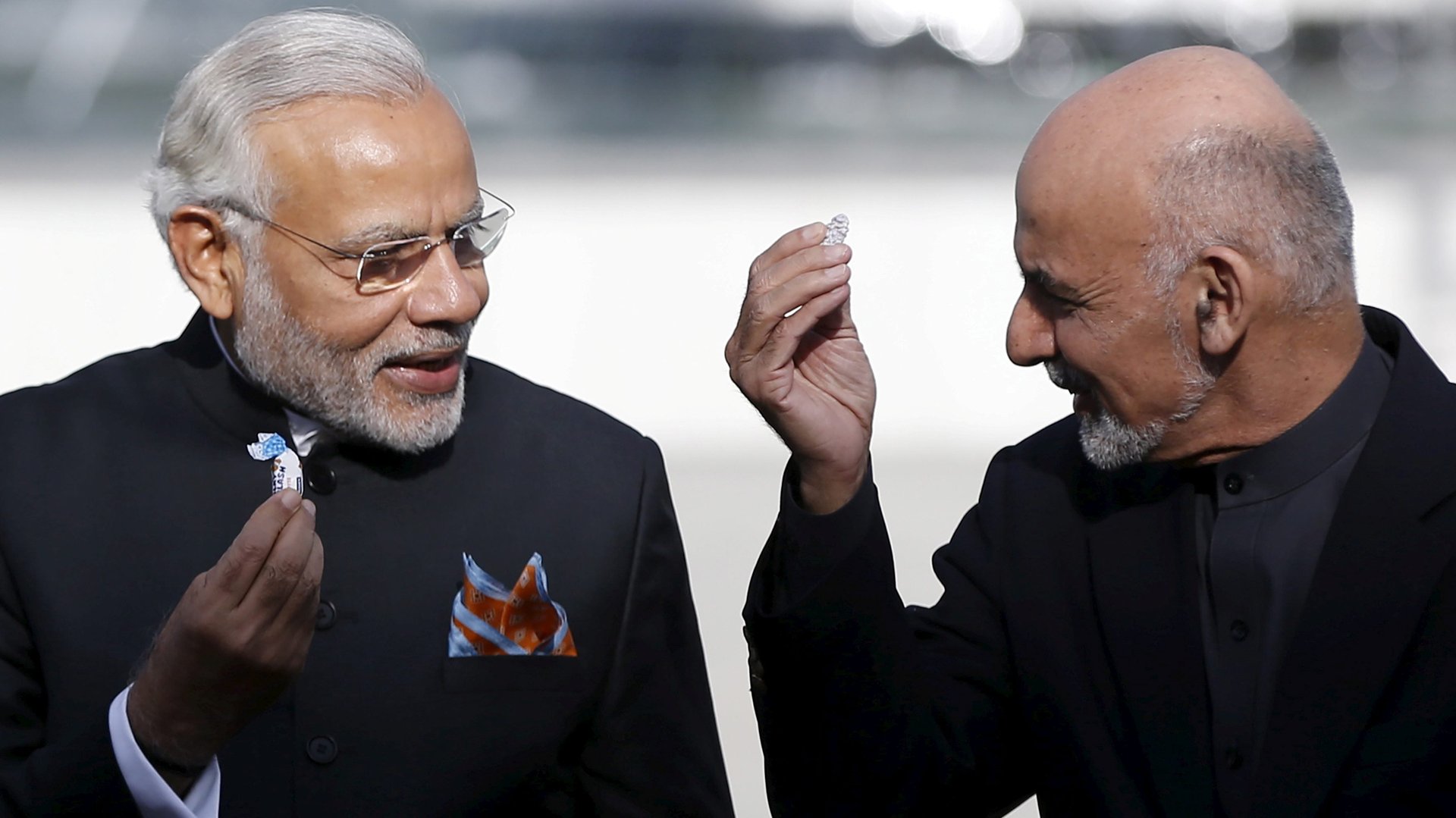A Taliban-led Afghanistan could mean all sorts of problems for India
The situation in Afghanistan could potentially set off a domino effect in the Indian subcontinent.


The situation in Afghanistan could potentially set off a domino effect in the Indian subcontinent.
As the Taliban gains near-total control of the country, India will be closely looking at how Afghanistan’s relationship evolves with Pakistan. For one, history suggests that a Taliban-controlled Afghanistan has contributed to militancy and conflict in Kashmir.
In his book Where Borders Bleed, Rajiv Dogra, strategic affairs experts and India’s last consul general in Karachi, described how the situation was fairly grim for India while Mullah Rabbani was the Taliban’s chief till 2001. “The ISI [Pakistan’s intelligence agency] was believed to have been talking to Rabbani and asked him for men to be diverted to Kashmir,” Dogra tells Quartz. ISI, he said, was probably expecting 10,000-15,000 soldiers. “At the time, Rabbani said he’ll provide 100,000 fighters,” he adds.
India, China, and Pakistan
Declassified US government documents chronicle the nexus between the Taliban and Pakistan’s “anti-India militant” training camps. And with China being a close ally of Pakistan, it could soon get “ugly” for India, according to Michael Kugelman, deputy director and senior associate for South Asia at the US-based Wilson Center. “This means that India faces the reality of not only a Taliban government in Afghanistan, but also its two biggest rivals deepening their footprints in a country where India has many equities, investments, and close ties with non-Taliban political leaders,” he says.
The return of proscribed militant groups like Lashkar-e-Taiba (LeT) could spell doom for India’s security, but it all depends on Pakistan. “The chances of this [the return of LeT] happening depend in part on Pakistan,” Kugelman adds, “which has close ties to both but because of intense international pressure has sought to curb—to an extent—its militant assets.”
India, which has often assumed the role of a stabilizing democratic force in the region, stands to be isolated in this scenario if it does not tread with caution.
India’s stance on the Taliban
“The world and India had notice of what will happen once foreign troops leave,” Dogra says. “After all, a corrupt government under president Ashraf Ghani has lacked the leadership for solid resistance.”
He cites the example of former Afghan president Mohammad Najibullah, who resisted the Taliban for two years without US support before his own execution in 1996. “Now they are crumbling like a pack of cards and it shows a lack of anticipation, will, and preparedness to confront the Taliban,” Dogra adds.
But it is also likely that India foresaw the Taliban taking on a key role in Afghanistan once US troops exited. According to Qatari envoy Mutlaq bin Majed Al Qahtani, in June India reached out to Taliban representatives in Doha, The Hindu newspaper reported. India neither confirmed nor denied this meeting.
Experts say that India’s policy toward Afghanistan has been consistently anti-Taliban since the group was removed from power in 2001. “This is why the Narendra Modi government’s decision to formally reach out to the Taliban was such a game-changer,” Kugelman says. “And it ended up becoming more important than India could have imagined, given the Taliban’s rapid rise to power.”
He expects India to quietly and cautiously reach out more to the Taliban, though formal recognition of the new regime is unlikely anytime soon. “That said, recent indications that the Taliban has endorsed Indian development projects in Afghanistan are encouraging, and this could serve as a useful confidence-building measure,” he adds.
Officially, though, India has largely remained silent on the crisis in Afghanistan, communicating only evacuation efforts for its embassy personnel in Kabul. “Given the volatility and sensitivity of the power shift in Afghanistan, it’s not surprising that New Delhi is staying quiet,” Kugelman explained. “With the Ghani government out of power, India has lost a key partner in Afghanistan. It may choose to see how things shake out before taking on more of a public role.”
India will also use the United Nations as a platform to convey its views on Afghanistan, given that it holds the Security Council presidency in August. India’s ambassador to the UN, TS Tirumurti, said yesterday (Aug. 16) that the situation in Afghanistan was of “great concern” to New Delhi.
“The current situation in Afghanistan has numerous challenges,” he said. “However, there are a few opportunities. If there is a zero tolerance for terrorism in all its forms and manifestations, and it is ensured that the territory of Afghanistan is not used by terrorist groups to threaten or attack any other country, then Afghanistan’s neighbors and the region would feel safer.”
Beyond the Taliban, it remains to be seen how India under Modi responds to a worsening humanitarian crisis in Afghanistan.
India’s response to Afghan refugees
As terrified Afghan citizens, especially women and children, look for safe asylum, India’s own altered refugee and citizenship policy may severely impact its humanitarian efforts. India’s Citizenship Amendment Act allows Hindu and Sikh asylum seekers a fast track to citizenship but excludes Muslims.
“We are in constant touch with the representatives of Afghan Sikh and Hindu communities,” the external affairs ministry said on Aug. 16. “We will facilitate repatriation to India of those who wish to leave Afghanistan.”
If India sticks to its CAA stance, it could exclude deeply persecuted communities like the Hazara Shias, Kugelman said. “It’s Afghan Muslims that likely constitute the largest percentage of potential Afghan refugees in the coming months,” he says.
As of today (Aug. 17), despite specifically mentioning Hindus and Sikhs a day before, India has begun issuing emergency e-visas to Afghan nationals, for the first time. The visa application also does not differentiate based on the applicant’s religious identity. This decision comes after India shut its embassy in Kabul, which makes it impossible for people to physically appear and apply for visas.